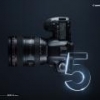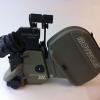Leaderboard
Popular Content
Showing content with the highest reputation on 02/06/2015 in all areas
-
How do you shave? Do you do it oldschool? With a brush and a bit of soap? An actual fancy bladed razor like back in the day or at a barber? Do you do multiple passes? Listen to a bit of jazz music in the background, taking your time? Dry up with a nice warm towel and finish with a splash of after shave with a slight alcohol burn? Does the routine comfort you? Does it clear your head? Does it keep you focussed? Did your years of shaving like that give you skills, making you hit that perfect clean shave everytime, without any skin irritation or cuts? It might take a bit longer, but there's something familiar, something comforting, something true and perhaps even romantic, about shaving like that. You could argue that it's quicker to take an electric shaver and go at it. Facing that blinking LED telling you the battery is out of juice... hairs clogging the apparatus, the aggravating noise. There's hardly any comfort in that, nor is it romantic. But it gets the job done, probably quicker and just as effective... What I mean is... maybe people just feel more comfortable shooting film, not even so much for the result, but because of the process. Because it feels right for them to do it that way and because of that they're able to give it their best. And who's to say which is better? I think it's a cool thing film is still around. Not that I would use it myself, but it's craftmanship... it's skill... and I'm just glad that there's people willing to keep that alive.4 points
-
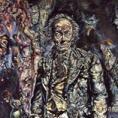
Kodak celluloid film saved by studios - oh and by the way - what's the point?
agolex and 2 others reacted to William Malone for a topic
Andrew, I just couldn't let this post go. I guess I would fall into the category of the "privileged few" having been a "film" director for over 35 years and having shot film almost exclusively. Let me start by saying while I do have a certain sense of nostalgia for film, I'm not someone who doesn't enjoy and in fact embrace new technology. I've been happily shooting "video" for the last 5 years with a ML equipped Canon 5D Mark 2. I have been waiting for the "perfect digital cinema camera" to come along before I upgrade. That has yet to happen. Because I'm an old guy, perhaps I may have a different prospective on this issue. The fall of film (in my demented perspective) is not that digital is better.. but because its cheaper. The seeds of the fall of film I think began in the early 80s. When I made my first film, I shot it in 16mm. At the time, a 400' roll of film (about 10 minutes running time) cost $34.00. Because of the Hunt Brothers trying to corner the Silver market, within a few weeks, the price of Silver went through the roof. Kodak raised the price to $76.00, which of course also included raising the price of print stocks. After a few more weeks, the price of Silver collapsed. Kodak never adjusted the price back down. Since then the prices of film and processing continued to rise until film and lab work fell out of reach of all but high end users. This left a huge hole in the market that video filled. In todays economy film cannot survive. Regarding Film versus Video; I made a film for Warner Bros in 2001. It was shot on an Arri 535 (Super 35mm) and was posted completely digitally. It was only the second film ever done that way at the time. The very first was the Cohen Brothers "Brother Where Art Thou?" The film completion bond company called it "Voodoo Technology". Now looking back on it all these years later, I still think this marriage (Film Capture/Digital Post) was the best it ever was. Let me be clear, you can get some terrific looking images with digital cameras but if you look at films made 10-15 years ago there are still looks you just can't get with an electronic sensor. There is a smoothness.. a silkiness that's just wonderful. For me digital has three big problems. Number 1 Rolling Shutter. LISTEN UP CAMERA COMPANIES!!! Don't even think about putting out another video camera with this problem... This is NOT a minor issue. (Yes I know some of the cameras are coming out with global shutters...and I know there are work arounds). You shouldn't have to rethink how you shoot something to accommodate the camera. Number 2 6 O'clock News Syndrome - I guess that I'm the only one who sees this as I've never heard anyone else mention it but it drives me crazy. During some action scenes you suddenly become aware you're watching "video" and it takes you out of the story. The movie suddenly looks like the 6 o'clock news and the illusion of film is suddenly gone. This seems to only happen during moving or action shots. I wish I could finger the culprit here but I just can't tell what's going on. Maybe someone can tell me. Number 3 And this one is HUGE. Archiving of Images. Many of the major film studios still do Black and White film separations of their movies including motion pictures shot on digital. Film has a shelf life of at least 100 years. This is now a proven fact. To date there is no safe and foolproof way to ensure what you shot will survive longer than a few years. I believe this era will be a period of the greatest loss of photographic images... It saddens me deeply... So will I go back to film? Probably not (except for shooting some art projects with my old 4x5 Grapflex). Do I miss it? Yes. There is something very tactile and wonderful about it. You open the side of the camera ... " I love the smell of Silver Halides and Acetate in the morning.... Smells like ... Victory". PS sorry for being so long winded. WM3 points -
I'm an old salt. I've worked in film most of my professional life, primarily in labs (gigantic and small) , post-production and editorial. The past fifteen years, I've been in film restoration. I have literally seen and handled hundreds of millions of feet of film in my life, dating from the early 1900's to, well, negs shot just a couple of years ago. In my work, we use traditional photochemical and digital technologies hand-in-hand. There are things digital can't possibly achieve, and things traditional photochemical processes choke on that digital wins as undisputed champ. And I LOVE my digital tech. I'm no luddite. In the end, though, I feel posts like this one (and on other blogs) re: the film issue are an exercise akin to arguing how many angels can dance on a saltine cracker. Or, to put it more directly, "You can't argue taste." It's a tool in the arsenal, just like why someone would shoot video with an 8-bit codec at 720P. Because they can/need to/like to. Right tool for the job. Everything else is academic. If YOU, the media creator, make the format choice that you believe is correct from an aesthetic, technical and budgetary standpoint, so be it. You are the artist. If it is to be 4K HFR 3D, great, if you want VHS, okay. If you want film, rock on. As to the dated, anachronistic aspects of the film medium, I agree it can be frustrating, unwieldy and time-consuming. I also happen to think performing live music with a band is a pain in the butt just for the sheer aggravation of moving a truckload of instruments, cabling, amps, etc. around, setting up, tearing down, but I would never advocate trashing it all for a keyboard and sampler just because it is cheaper, more convenient and "is just as good." Just one man's opinion...3 points
-
Cinematocrapper sounds like it could be a thing.2 points
-
Aren't all digital films transferred into film to preserve them? Digital preservation doesn't last. I personally can't wait for Star Wars to return to Film, the most recent Digital Star War films were visually totally lacking in character.2 points
-
I've never specifically worked with film or done comparisons to digital, but here's the impression I get from reading posts by those who have. Digital has certainly caught up in terms of resolution. It appears to be caught up, or at least very close, in terms of dynamic range. A long time Achilles heel of video. Where I think digital might still fall behind is the richness of color and the color science itself. The "mojo", if you will. Which is why specs and charts never tell the whole story. Not saying I agree with it because I don't really know, but I do wonder if film is still king in this regard? Anyone who worked with it want to chime in?2 points
-
Kodak celluloid film saved by studios - oh and by the way - what's the point?
nvldk and one other reacted to Willy Busfield for a topic
The only person being elitist is you, by thinking the medium they are choosing to use isn't good enough.2 points -
Your argument seems to be that there is no difference.... in which case, why care if something is shot on film or digital? It's not your money or time.2 points
-
I shot on film for 15 years mainly Kodak Vision Stocks - but some Fuji too - Ive shot on digital for the past 10 years - do I miss it .....errr Not Really but it does have a look you cant quite get with digital - plus its an archival devise too - I have loads of cans of film stored from all my jobs in the 1990s .......You can hold it upto the light and look at what you did....... god knows what will happen when all our hard drives pack up.....we will wish we all had a good archival system then........ ps did I mention shooting on film COSTS A FORTUNE.....I dont miss all that ....negative insurance...remember that hidden cost on every joib... 22251 point
-
Full Frame VS Crop Sensor Anamorphic
Cosimo murgolo reacted to grierdill for a topic
Cool. I should have the Focus Module soon and I'll be doing some tests with the Pocket Camera and an A7s for my own edification. I'll see what arrangement works best for me.1 point -

Kodak celluloid film saved by studios - oh and by the way - what's the point?
Patrick reacted to Flavio Isawa for a topic
I respect your opinion that film is dead, but my main issue with that, is that the archiving process is proven to be better on film than in digital. The best in digital at the moment is LTO tape, and that will only stay for 20 years. If you ever went to a Cinematheque, you will see that most of the films there are kept in film, even digital ones. When Kodak filed for bankrupcy, my first thought was "Fuck, what about the archiving films?". Digital storage companies have great R&D teams that probably are looking for a reliable form of archiving, but that's not profitable for them. Even if they do find a way of better archiving, will they make it a product? They are probably focusing on speed and sizes, as 4K video reaches the market, and not long life storage. And as digital technology improves, what about formats? As you probably know, there are several of codecs and formats being used for films around the world right now. When I went to my local Cinematheque, they still had professional video TV decks from the 80s. Yes, the 80s. And their main issue was that the company that made those decks couldn't provide repair pieces for them because they didn't have the means to produce them. So, they have hundreds of tapes waiting to be archived in other formats because technology went on and got better. Yes, digital is "cheaper" and more "democratic" (democratic and cheaper from certains points of view), but if we stop funding the only company in the world that still makes THE reliable medium to store films, we should probably stop funding all those Cinematheques all together because history is useless.1 point -
Hi John. Please now limit the bumping of this thread until you have some photos of physical finished items as well as test material showing the finished units in action. 3d renders don't need to be recycled any more now. We all know what they look like. we now need to see the sustenance from the actual units for sale here.1 point
-
Back to why the Sony F35 may be the most closest to film from a digital camera. How it handles highlights. CCD - global shutter. I have 2. I love them. But it's all subjective/ Just like in the film days we would be having these same exact arguments over fuji vs kodak - which one did you like better? Same shit, different decade.1 point
-
from http://eddavid.tumblr.com/ This happens to me all the time. I create something and I upload it immediately, like in a great rush. I'll post a video or even a blog post and then I regret it - I sent it too soon. The color is off. There are typos or grammar errors. Why am I always in such a rush to post things? My latest short film about leaving the city for the country has taken a lot longer, because I'm not rushing - I'm stopping to think - sitting on something for days or weeks - and thinking about it. Even though honestly I already posted it for 6 hours, and then I regreted it and pulled it from vimeo.com. I think now more than ever for all artists it's so tempting to just hit the "upload" button like never before. Before youtube and vimeo, you made a film, you had to show it publically and not as easily - so you had time to tweek it and prepare it more. Now it's so different and maybe that's why so much art I feel is becoming more and more disposable. There is still so much good art happening, especially in films (2014 was an excellent year) but there is so much more trash since the democratization of filmmaking. So much more content, and so much of it needs more revisions and revisions. Authors always have their editors. Films have their executive producers. But now more than ever there is little financial need to be cautious - you can just make a film on your own and upload. And I am guilty of that. The limitations and people's voices can sometimes lead to a greater piece of art. And that's kind of why I enjoy working in commercials - because there are so many voices and opinions and the end goal is to make the best film possible. I like this collaboration - it interests me to see how directors work with this - and how to keep their vision in this difficult field where there can be up to 20 different voices. The classic example of art taking its time vs rushing is Star Wars. I could use Woody Allen, but it's time for me to not be pretentious at this one moment in time. When George Lucas had to fight and fight and fight to make Star Wars in 1977, he made a beautiful, challenging, relatable film. When Phantom Menace came, he had complete creative control - and it was less than ideal - poor story poor acting, poor editing, and even kind of racist. No one questioned him. Not even about the racial implications of the aliens and Jar-Jar Binks - what was he thinking with this guy? And the man had some of the best actors of the time and they gave wooden performances. Interestingly enough too, Star Wars 1977 was shot on film, Phantom Menace was shot digitally. Not to open up that bag. There is a hilarious youtube video about figuring out what went wrong with the Phantom Menace. https://www.youtube.com/watch?v=FxKtZmQgxrI But anyway now more than ever artists really need to take a step back, and be wary of that, "instant gratitude" button. Sure you get a few 100 likes or some comments, but you're going to look back in 10 years and go, "man , I wish I took a little more time on that one." Because at the end of the day, we should all be making art for the betterment of the world, and making art that lasts. And the best film I have seen in recent years was made in 1968 - Symbiopsychotaxiplasm: Take One - and definitely feels like Bill Greaves really took his time on it. It's polished - it's a perfect run time, it's challenging, it has no fat in it. It feels like someone really took their time, and it stills captures the essence of life, so flawlessly, so breezily. And that takes a lot of work.1 point
-
Make a film, a music video or a commercial. Everything else...absolutely everything and anything else...is videography, not matter how "cinematic" it is. And Rodriguez didn't shoot weddings.1 point
-

Canon 5Ds does not feature 4K video
Brellivids reacted to Anthony Powell for a topic
In an electronic age, that's like saying cell phones should concentrate on only making good phone calls, you don't buy a cell phone to have a good readable screen, or to check your email, or send text messages, or browse the web etc.1 point -
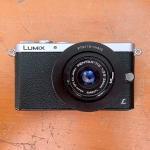
Kodak celluloid film saved by studios - oh and by the way - what's the point?
Daniel Acuña reacted to fuzzynormal for a topic
There's definitely a different vibe on set when things are being shot on film. That can be exploited by directors/producers that are canny, excuse the pun.1 point -
The argument will work itself out over the course of time. If top D.P.'s stop using film there will be less call for it. I'm quite sure most of them have done comparison tests with the state of the art digital. You also seem to be assuming here that film is being kept alive as the capture medium. I think the studios need to keep film around to preserve their work. When large studios submit their films to the U.S. Copyright office for registration they submit film prints because of their archival quality. We know that in 50 or even 100 years if there's a projector or scanner around the film will still present a decent image. Digital on the other hand changes so rapidly that it's less comforting to imagine that a digital file submitted now will be readable in even 10 or 20 years time. The standard submission format for long form film or video content for those of us without many thousands to spend on film prints is DVD or Blu-ray. It's recommended to send a backup disc but that's it. How likely is it that those discs will still be readable if not corrupted in 20 years? I've spoken with the Copyright office several times about this and they don't ingest the files into their computer system...the discs simply get filed and it worries them too.1 point
-
to quote policar -Fwiw, 709 and sRGB have about the same chromaticities and i have rec 709 option so i just do it hopping its some what accurate HP dream color is nice but even that monitor you need additional hardware to get full use of dramcolor engine to get 10 bit and rec 709 working and if you are on OSX you are out of luck since osx does not output 10 bit unless more money is spend for additional hardware . the only way of calibrating these (cheaper) screens is to use a large calibration 3D LUT (cLUT) First option is to get external LUT box (for 1080p signal the eeColor is fantastic - there is no 4K LUT box yet) - lots of peeps use the eeColor with the HP DC since it's 1080p only if u want to calibrate a 4K screen or don't want to spend money on an external LUT box, then you could use a 3D cLUT within Resolve that then outputs a specific color corrected signal from Resolve to your screen, best solution for this appraoch is Lightspace for Resolve Light or Lighspace for Resolve Full this is would give u the best color performance u can get from these screens, obviously that will not cure screen uniformity issues, LCD backlight contamination, viewing angle etc... that is what it is with cheaper hardware of course an alternative to all of this is to buy a screen that has internal 3D LUT storage capabilities such as Eizo, FSI, TVLogic etc. So basicly what i am saying is MORE MONEYYYYYYYYYYYYYYYYYYYYYY1 point
-
Shooting film requires a Discipline. Its not about being fast but being a creator, an artist, is the magic of the unknown within the known parameters. DP's all over would shoot film over digital, for many technical reasons and its proven that it would not be much more expensive. I have shot 35mm (Fuji and Kodak) and the latitude its fantastic. I agree with one comment, there is a democracy in Digital, But film requires craft and Discipline, that can hardly be found in the simplistic world of fast content. Its easy to dismiss Film, when there is very little knowledge of the craft.1 point
-
I've been using the new Dreamcolor, which is ok except that it has bad off-axis performance (really more an issue with a weird anti-reflective coating), poor uniformity for a reference monitor, and it's only an 8 bit panel. I feed it with a black magic interface (via HDMI) and can grade off my rMBP with no problem. It's a pretty nice set up. Calibrated to rec709 out of the box, but need recalibration after a while. For a little more (or a lot more, really), the FSI BM210 is sick. Also an 8 bit panel, but amazing. There are some inexpensive (older) plasma and LCD tvs that you can get really close with simple blue gel and pluge bars. If you're grading for broadcast and aren't a perfectionist and know how to follow your scopes. Fwiw, 709 and sRGB have about the same chromaticities (or trivially far apart), but different gamma. Are you grading for web or for broadcast? If for web any decent calibrated display will do fine. I like the dell ultrasharp line and you can get a nice $200 dell and $150 probe and be all good. For broadcast, the Dreamcolor isn't really "good enough," but it kind of actually is. There are good LCD and Plasma tvs out there, too, but the blacks often take on tints that aren't trustworthy and I find the skin tones sometimes skew a bit magenta or yellow and the greens a bit teal or chartreuse. Unfortunately, those are very important colors. But you can still get 98% great. It's difficult to tell anything from the video you posted. What are your IRE values on the noise floor? If you want to know if it's crushed or not that is where you will find out definitively.1 point
-
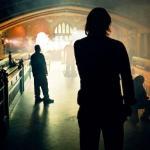
63.7 megapixel raw with the E-M5 II - and finally 24p at 77Mbit!
Cinegain reacted to John Brawley for a topic
Cheers. I think the camera is capable and I prefer it for video very much to the E-M1 no question. It's very useable overall, wanting only for what we all want...more DR, higher bit depth internal recording and 4K.... There's still a lot to like though over the pocket, but it all depends on what's important to you. JB1 point -

63.7 megapixel raw with the E-M5 II - and finally 24p at 77Mbit!
John Brawley reacted to Cinegain for a topic
Curiosity looks great, John. Well done. Takes a bit of the slight scare away from some of the first footage I saw earlier. Was secretly hoping they'd give the OM-D E-M1 with same processor and everything the video upgrades as well (but then again, we've been hoping for framerates to come to the E-M1 for just about a year now, to no avail). I really like the E-M1, but if the E-M5II matches or surpasses its image quality and adds more flexibility with the vari-angle display and the other features (and accessories, the grip looks nice too, and headphone jack!)... there seems to be enough additional reasons to swap out the E-M1 for the E-M5II. Being able to stabilize all my native full manual lenses (e.g. SLR Magic HyperPrime CINE 25mm T0.95), either something vintage M42 (e.g. MIR-1B 37mm f/2.8) or speedboosted third party lenses (e.g. Sigma ART 18-35mm f/1.8) is pretty valuable to me. But it's supposed to free you... and that's not what the videomode on the E-M1 was about. Which is a shame, because it then more or less became my dedicated stills camera, leaving video over to the GH4 and BMPCC, which don't have the luxury of featuring IBIS, but do have the greater flexibility what video concerned. But I'm glad if Olympus could meet me in the middle here. If not with the E-M1, then atleast with the E-M5II. Probably gonna give it a play around when it hits the stores. Might just have to go and get me one.1 point -
Long time lurker. A post that made me finally want to create a user name. I'm all for digital and the freedom it brings to all film makers. But I recently had a discussion with a colorist about this subject and he (proponent of film) said something that made me think about my thoughts on digital/film: 'If you didn't have to worry about budget, would you choose film or digital?' I'd have to say at this point, I'd probably choose film (and only to shoot, not for projection.) But those days are definitely numbered.1 point
-
You should just delete this post because you aren't making any sense. You've been pushing the organic feel of images for years now with anamorphic lenses and praising cameras/lenses that aren't too clinical because they have a "film-like" look, and now you're telling them to stop promoting film stocks for good? What's wrong with giving filmmakers the option of using their preference of image acquisition, digital isn't going anywhere so this news will have ZERO effect on what you're doing. Also, you don't see the benefits of meticulously planning and visualizing a scene when working with film's limitations? Movies these days are shot so haphazardly and sloppy because people have an infinite amount of recording time and a ridiculous amount of flexibility in post to fix their mistakes later. I personally work better under limitations, shooting raw on the BMPCC with 20 mins per card kinda' reminds of film so it makes me work more carefully. Anyway, it feels like you're making a stand against film just to have an excuse to write something.1 point
-
http://vimeo.com/83774924 here's a director dp working with (super cheap) super 8mm (i support the artist and whatever choice he or she makes) for me kodak film...watching first dailies...well it was love at first sight...the unexplainable... for practical reasons use both digital and film keep them both competitive and evolving1 point
-

Kodak celluloid film saved by studios - oh and by the way - what's the point?
Cineman1 reacted to Daniel Acuña for a topic
Film is going to stay for people who want to use it (obviously it's not everyone), it's just another option ou there for "some" filmmakers. One of the main reasons people still want to shoot with film, apart from it's look, it's because of the workflow, they are used to it, (shooting, and then watching the dailies later, etc..). Some DPs hate the way digital works (I am not talking about how it looks) but because now they have 12 people watching on a screen what the DP is doing and giving remarks on his work, he has much more pressure, especially if actors are not happy the way they look. With film everyone would trust the DPs knowledge and experience. In the end it's still just a tool to tell a story, if the directors thinks that it is going to help him tell the story because he prefers the look, the workflow, and what it means to shoot film, then so be it, who are we to tell if something is better! I really don't see what the fuss is all about, we should be happy that film will still be around as an option to shoot a movie.1 point -
You realise that film gets digitized right? You can stretch that image any which way you want. Each film stock is just another "sensor", at the end of the day.. Just an analogue one with a look that some people think is right for them. Choice is good.1 point
-
Kodak celluloid film saved by studios - oh and by the way - what's the point?
Xiong reacted to Willy Busfield for a topic
Using film can give an artist something to react to. Something tangible and predetermined in look and feel. If that feeling benefits the filmmaker then who cares if they use it. Skin-tones and dynamic range hold a very subjective importance. The artist feeling inspired and reactionary has more value and film can force that value with certain filmmakers. Christopher Nolan's films feel cold because of Christopher Nolan, not because he's shooting film. He has the best of the best loading and cleaning his cameras, it doesn't take any more time or thought on his part. I hope film never goes away. Diversity and character in our tools as filmmakers is a beautiful thing that is being watered down by the ease with which technically pristine images can be captured.1 point -
There are alot of valid reasons that most films are shot digitally.... But if a crafted film maker wants to use film and knows what they are doing, how is that a bad thing? It is like wanting to stop making pianos because it takes longer to tune, is heavier to carry and a digital piano can now recreate the sound (debatable). To me, The Dark Night was, visually, one of the most stunning films of a generation.... Maybe it would look just as good in digital (if a 65mm digital cam even existed then). Why take away the choice though or be unhappy that the choice is now going to be available?1 point
-
You answered your own question... The magic of having a film camera on set is the image quality and the feel.1 point
-
A couple of years ago, you were championing shooting 1 second 4K raw with a Nikon v1 and said it was a good way to get focused on the art.... Now 12 minutes of film is too restrictive and cold? I'm happy that film is going to be available. The more options the better....... In the right hands, it is still the most visually appealing image in the world, with a certain magic that I have yet to see with digital. I only had the pleasure to shoot 16mm at college, but it was and still is special.1 point
-
since I'm born in '91 I have no emotional attachment to kodak...but after working with it...well there is a magic to it....professionally in LA shows like BREAKING BAD..TRUE DETECTIVE..BOARDWALK EMPIRE..are amazing visually...pick the right medium for the right job...(for me ..it's when you have actors..models...high end commercials...skin tones are important) (try it when you can it is amazing) no reason to wish the death of a great medium..which built the industry1 point
-
Lovely video with one of the coolest openers ever. Great work!1 point
-
Canon 5Ds does not feature 4K video
Brellivids reacted to douglaurent for a topic
i would have bought 3 of these 50MP cameras if it had 4K. now thanks canon, i will buy ZERO. and if the 5D4 comes out with 4K and does not top the 1DC or A7s, and has no swivel screen or focus peaking (although this is the 5D "video" model version), i will buy zero as well. too bad their stupid cinema department is holding down everything in limiting the DSLR products. if they would bring all features into ONE camera product, they could sell record numbers and be the kings again like in 2008. now it seems they will lose more and more market share because nobdy needs a canon camera body anymore. for a pure 50MP photo camera i'd buy medium format.1 point -
Panasonic GH4 user films, tests, reviews and opinions
nib187 reacted to Fritz Pierre for a topic
Found these settings on DVX user...amazing skin tones and retained detail in shadows...http://www.supertone.dk/#!GH4-Optimal-Film-Setting-works-in-stills-too/c24o4/8E18836A-F271-4A14-AF0D-C575B9D5F4B61 point -
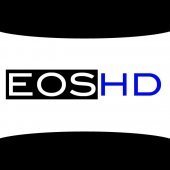
Canon 5Ds does not feature 4K video
Brellivids reacted to Andrew Reid for a topic
Very old argument, from 2009 in fact! Move along please.1 point -
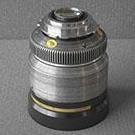
Full Frame VS Crop Sensor Anamorphic
Cosimo murgolo reacted to richg101 for a topic
Ultimately it's easiest to get sharp results from smaller sensors since it's less stressful on the optics. The bigger the sensor, the better the optics need to be in order to cover it successfully with less aberrations etc. Assuming your budget allows an iscorama 36, then full frame will give you a more powerful setup since the 'rama can deliver sharp results on full frame and with big apertures. a full frame sensor + 85mm + iscorama36 set at f2 will be nearly impossible to match in terms of fov and dof ratio. to get a similar look on the pocket cam you'll need a 30mm f/0.7 - f/1.0 + iscorama36. Sensor size won;t determine the amount of oval defocus distortion, but since you;re using a wider lens for the same fov you'll need very very fast lenses to get the same shallowness of dof. Without the shallowness of dof, the oval defocus wont be as obvious. unfortunately very few anamorphic lenses can actually deliver on full frame sensors, so using smaller sensors can often be an advantage. APS-C sensors are probably the sweet spot since a 58mm helios 44 and iscorama is having it's best portion of the optical path being used while the focal length of 58mm dictates a nice shallowness to the dof, while coming close to the limitation of the iscorama36. you can get to around 35mm, but will need a fast 35mm that is also sharp to match the cheap 58mm f2 helios44.1 point



